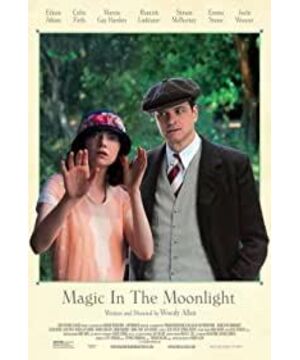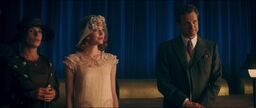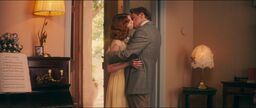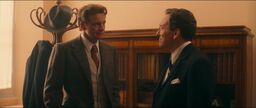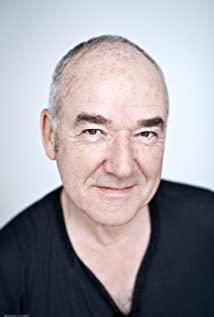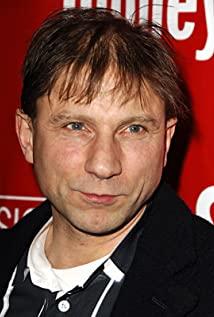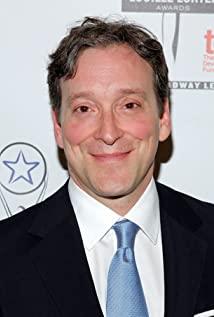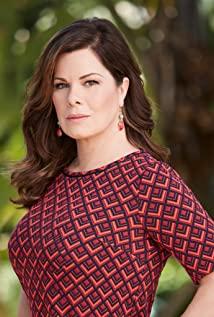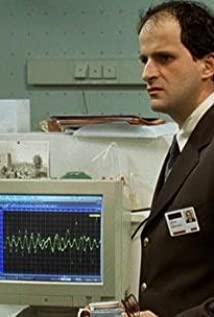"Magic Moonlight" is a film written and directed by film master Woody Allen. Since its release in 2014, the film has generally received a mediocre response. The consensus among critics on Rotten Tomatoes is that "Magic Moonlight" is not bad, but it's still a bit disappointing as a film master's work. In addition to Woody Allen fans, the general audience also responded mildly.
However, I was completely and completely satisfied watching "Magic Moonlight", like a body leaning on a sofa that provides perfect support, or the back of my tongue enjoying a meal. I want to share in this article the joy I got from the film. In the following text, I will have spoilers, so here, I will only say that the protagonist of the film is a Western magician in the 1920s. The content is not obscure but not lacking in depth. If you haven't watched this film but are interested in watching it, please stop here, watch this film and then come back to read this review, because the plot of the film is a bit like a magic show, which is misleading and unexpected, the audience should follow The plot goes, will get the best viewing experience.
Before watching "Magic Moonlight", I was translating a book about the history of modern magic, which involved a lot of historical content in the late nineteenth and early twentieth centuries, such as Orientalism in magic shows, and modern magicians and The hand-to-hand combat of psychics. We now understand that period of history mainly through text narration, and secondly through some preserved historical video materials. However, due to the limitation of imaging technology more than 100 years ago, there was not much image data in that era, and the only little image data, by today's standards, its clarity and fidelity can be said to be appalling. . As the saying goes, “A hundred things are better than a hundred things to see”, and the images preserved in history are too far from what can be seen at the scene. But the film made in 2014 can technically provide us with vivid, specific, clear, and almost live images. Whether it is faithful to the historical truth is another question.
"Magic Moonlight" begins by taking us to a Berlin theater in the twenties, where a magic from the East is being staged.
The magician's name is Wei Ling Soo.
Audiences who know more about magic will think of a legendary magician named Chung Ling Soo at the turn of the century from the 19th to the 20th century. This is actually a Chinese name, and the corresponding Chinese word is "Cheng Liansu". There are multiple reasons why Cheng Liansu is so famous. The most impactful reason was the end of his life: he drank a bullet in public for performing a miracle that he couldn't kill with a gun. In history, Cheng Liansu is not the only one who lost his life in a magician due to a performance accident, but there is no other person in history as ironic and dramatic as his death. Secondly, Cheng Liansu is very eccentric. He is a white American who can't even speak Chinese, but he gave himself a Chinese name and dressed himself up as a Chinese for a long time. The most bizarre thing is that he also dealt with the public in the image of Cheng Liansu, a Chinese magician, under the stage, so that the public at that time thought he was an authentic Chinese before he died on stage. This is a photo that Cheng Liansu left to the world:
The prototype of the image of Cheng Liansu is the famous overseas Chinese magician Jin Lingfu (real name: Zhu Liankui), whose English spelling is Ching Ling Foo. According to some data, Jinling Fu was once the top box office earner of magicians in the United States, which shows how popular Jinling Fu was in the United States at that time. Cheng Liansu followed the steps of Jinling Fu at the beginning, imitating Jinling Fu's every move and style, but he never officially worshipped Jinling Fu as a teacher. In fact, their relationship has not been harmonious. In the end, Jinlingfu and Cheng Liansu will have an open magic duel to show the world who is the real Chinese magician.
To me, what is particularly interesting is that in the era of Cheng Liansu and Jin Lingfu, the Western magicians who dressed up as Chinese magicians and performed on the stage were not alone. ? Are the Chinese magic they performed the same as the traditional Chinese magic we see today? What was it like to watch them perform? Check out Woody Allen's historical reenactment for us:
Since historically, the Chinese corresponding to Chung Ling Soo is "Cheng Liansu", let's call the protagonist Wei Ling Soo in the film "Wei Liansu". Historians call the era of Cheng Liansu and Wei Liansu the "Golden Age of Magic". Let us imagine that there were no magic or sci-fi blockbusters with excellent sound effects and sound effects in those days, and the film technology was just in its infancy. And Woody Allen's film shows us that the magic of that year was staged in first-class theaters, and giant beasts like elephants were used in the performance. The accompaniment is a live performance of Beethoven's symphony.
Woody Allen cast Wei Liansu as a world-renowned British magician with an oriental appearance, a conceited atheist, and an aggressive anti-counterfeiter. This is a fairly typical image of a magician of that era. For example, a leading figure in the British magic circle at that time, Masculin, was a very sharp-spoken theorist and thinker who criticized various superstition phenomena, and had a profound influence on the entire Western magic circle. But Wei Liansu is still the most like Cheng Liansu in history. Cheng Liansu is not only famous in the United States, but also in the United Kingdom, France, and Germany. To the magic audiences in these countries, he is a magical Chinese magician. Moreover, like many magicians of that era, Cheng Liansu himself also engaged in anti-counterfeiting activities. He wrote a book dedicated to explaining in detail the deceptive methods used by fake mediums to summon the undead to write various messages on the small blackboard.
Well, the male protagonist has introduced so much first, and now I will talk about the heroine Miss Baker in "Magic Moonlight". Although she was born poor, she has a talent that ordinary people don't have - she can predict the future and communicate with the spiritual world. This kind of person is called a "psychic medium" in the West, that is, a person who can help humans communicate with the spiritual world. In the era of Cheng Liansu and Wei Liansu, there were a lot of psychic mediums, because in their time, there was a movement called "Mysterious Revival" in the West. Many people in Western society began to believe that there was a supernatural outside the natural world that ordinary people could not see. world. This sounds counterintuitive, because at that time the Western world had gone through hundreds of years of enlightenment, scientific concepts had permeated every aspect of modern life, and science had not given any evidence of the existence of the supernatural world, how could people suddenly Turning to believing in things outside of nature? There are two explanations for this phenomenon: one is that scientific reason is a kind of anti-humanity, people are fundamentally perceptual, the development of science has brought people a sense of oppression, and the mysterious revival is a response to this sense of oppression. The second is that science has turned into reality countless things that were considered magic and miracles in the past, leading some to believe that humans now have a new ability to understand paranormal phenomena. I think this is a bit like in the 1980s and 1990s, when China was rapidly moving towards the four modernizations, a qigong craze that swept the whole country for no apparent reason in the society, which not only included traditional beliefs, but also Contains many new "scientific" interpretations of Qigong phenomena.
Miss Baker is a beautiful woman, her big clear and bright eyes enhance her innocent temperament. In terms of appearance, she has the advantage of being trusted by bloggers, or, in other words, she has the advantage of being charming. This is the power of sensibility.
Among Western mediums, women make up the vast majority. This is because in the traditional Western concept, reason will keep people away from the spiritual world, and children and women are the most emotional, so they have the strongest natural ability to channel. The most famous pseudo-psychic medium in America is the so-called "Fox Sisters". A prank they had as children began their decades-long career as a medium. When they debuted, they were still children. On the one hand, people don't believe that innocent children will cheat to the end, and on the other hand, they think that even if children can cheat, adults can easily see through children's cheats. However, the Fox sisters' deception was so successful that when they came forward to confess in their later years, their followers would rather believe the Fox sisters' youthful lies.
I've always wondered what the psychics that were all the rage in the West were like. For example, I have read in many places that a common form of psychic meeting at the time was that the psychic led several people who wanted to communicate with the dead to sit around a table, and everyone involved put their hands on the table, and then The psychic begins to summon the spirit. Although Westerners don't pay attention to yin and yang, Western ghosts don't seem to like light either, so psychics are usually held at night and in dimly lit rooms. In a psychic meeting, the undead usually do not show up or speak, but often answer questions from the living by "tapping the table". This will avoid possible problems with the language. I heard that the famous magician Houdini had a very close relationship with his mother. After Houdini's mother died, Houdini suffered from the loss of his mother, so he turned to a psychic for help in order to communicate with his mother's undead. As a result, just after the psychic passed on a so-called message from Houdini's mother, Houdini became furious, because Houdini's mother never spoke to Houdini in English during her lifetime, and Houdini's mother's words English ability is also very limited. Houdini heard his deceased mother "speak" to him in perfect English, and he believed he had been tricked by a shameless medium. Therefore, using the "light table table" method can at least avoid the wear caused by language problems.
But what exactly is the sound of "tapping the table"? How soft is the "tapping" sound? Is it as light as if there is nothing, or as light as a light knock on the door? Is the sound of "tapping the table" like the sound of the knuckles of fingers hitting the table, or is it more like the sound of palms hitting the table, or the sound of hard objects such as hammers and stones hitting the table? What is the state of a psychic when channeled? Will it become crazy and slurred? Or is there nothing particularly exaggerated weird behavior? Reading written material and browsing static historical photographs does not give me the answers to these questions. And Woody Allen recreated the scene of a psychic meeting in "Magic Moonlight", hosted by the heroine Miss Baker, which really satisfied my curiosity.
To summarize the introduction of the male and female protagonists above, we can see that the director and screenwriter have set the characters for these two characters: the male protagonist is a successful career, reputable, advocating science, and a little bit rational. An elite magician whose mission is to break down superstitions and fight charlatans, the heroine is a professional psychic who looks like an angel, has a low education level but is talented, and looks supernatural, but is very likely to be a liar. Historically, magicians were the natural enemies of psychic mediums. To a large extent, modern magic has established its own scientific, progressive and moral social image by fighting against false supernatural and mysterious phenomena. Every time a magician succeeds in cracking down on counterfeiting, the magician not only shows his superior skills in front of the public, but also wins morally, and he feels a little bit like eliminating harm for the people, and this is a high probability event. So far, I haven't read a history where the magician and the psychic were defeated, and the psychic showed the world that they had psychic abilities. Therefore, the encounter between the male and female protagonists of "Magic Moonlight" can be said to be "it's not that the enemy does not get together", it is basically inevitable that a good show will happen soon, which makes the audience full of expectations.
The synopsis of "Magic Moonlight" is this: In the south of France in the 1920s, there was a huge wealthy family. The tycoon passed away just a year ago, leaving behind a wife, a son, and a daughter. The family met our heroine, Miss Baker, at this time. The wealthy son, who is at the age of marriage and childbearing, falls in love with the smart and beautiful Miss Baker at first sight, and it is difficult to extricate herself from it, and Miss Baker can help the wealthy wife to contact her deceased husband, so she is also deeply appreciated by the wealthy wife. Seeing this, the rich daughter and son-in-law have reservations about Miss Baker, so they ask their magician friend Howard to identify Miss Baker. As a result, Howard could not see any flaws in Miss Baker, so it was time for our hero Wei Liansu to appear. Wei Liansu is an international magician who has fought with psychic mediums many times and has never missed a beat. This time, the fight is to send a friend Howard to invite Wei Liansu to come out and help Howard's friend. Wei Liansu feels that he is responsible for fighting counterfeiting this time, and he is determined to win.
But the next episode is that after Wei Liansu had contact with Miss Baker a few times, not only did she not see any flaws in Miss Baker at all, but she let Miss Baker show her magical powers and revealed all kinds of Wei Liansu's little-known facts. personal details. Wei Liansu had to readjust his view of Miss Baker and even his view of the world in the face of the facts. What I need to say here is that, as a moviegoer, in the process of watching "Magic Moonlight", my thoughts were also shaken by the thoughts of the male protagonist. Does Miss Baker really have supernatural powers? As mentioned earlier, I know that in the history of the battle between magicians and psychic mediums, the magician sees through the psychic medium, and the magician has never encountered a real psychic medium. However, movies are fictional works of art, and movies do not need to be completely faithful to reality, a movie can depict a real medium, just as it can depict a real magician, a superhero, a snake spirit, or a fox fairy That makes perfect sense.
Long story short, in the end, Wei Liansu and the audience of the film realized that Miss Baker was indeed a fake psychic medium and a liar, but the magic of "Magic Moonlight" lies in the fact that the male and female protagonists, a master of counterfeiting and a liar, ended up falling in love with each other. . How does this seemingly impossible ending make the screenwriter and director justify it? If you have seen "Magic Moonlight", I don't need to gossip here. If you haven't seen it yet, hurry up and watch it. Some people say that it is impossible for the male and female protagonists to fall in love with each other, and they have no ideological foundation to love each other, but I think that their love for each other is inherently rational. In terms of means, magic and pseudo-psychics are the same, and the difference between them lies mainly in their different purposes. Therefore, as a pseudo-spiritual medium, Miss Baker should appreciate the professional ability of magician Wei Liansu more than ordinary people; for Wei Liansu, vice versa. The truth between the two of them involves their concept and attitude towards life, and touches on something deeper in their hearts. They talk about symphony, they talk about philosophy, they talk about morality. In contrast, the relationship between Miss Baker and the rich son is shallow: the rich son is wealth to Miss Baker; Miss Baker is beauty to the rich son.
In order to help readers who are not proficient in English and magic, let me talk about the title of "Magic Moonlight", so that everyone can better understand the theme of the film. Literally translated into Chinese, the title of the film should be "Majack in the Moonlight". The word "Majek" has many meanings in English, which can express magic, magic, magic, wonder and so on. Because "Magic Moonlight" filmed night magic shows and similar psychic sessions, it should be good to understand "Magak" in the title as magic or sorcery, but overall, the theme of the film expresses It is beyond magic or magic, so it should not be an exaggeration to understand the "Magak" in the title as magical or wonderful. I guess Woody Allen is deliberately trying to play on the ambiguity of "Majack".
I like "Magic Moonlight" in two main ways. The first aspect is that it more realistically and profoundly portrays a character whose profession is magic. In general movies, magicians are used, and magicians are always used as movie props. They focus on the external characteristics of magicians and show less of the inner world of magicians and magic. For example, in other movies with a magician as the protagonist, we see the magician use magic to commit a crime or escape a bad guy. These are all using magic as a tool that is relatively independent of the character, rather than as an internal factor that drives the character's behavior. "Magic Moonlight" gives us a glimpse into how a good magician sees the world. A professional magician once told me that she was better at spotting scams than ordinary people. Unsurprisingly, one of the central jobs of a professional magician is to learn, ponder, design, and implement various methods of misleading and creating illusions—experiences and knowledge associated with this can, over time, produce paradoxical effects. . So, even when magicians come across a new scam, they tend to find a way to unlock the secret faster than the average person. But it is precisely for this reason that when we ordinary people watch magic or qigong performances, it is easier for us to get a sense of magic; and the more thorough the research on magic, the more difficult it is for us to obtain such a sense of magic. Top magicians like Wei Liansu are in a state of severe hunger for magic. They are very eager to see a miracle or meet someone who can scare them. Miss Baker once stunned Wei Liansu, which made Wei Liansu feel very shocked. This kind of shock is not comparable to what ordinary people feel when they see wonderful magic. As a result, Wei Liansu couldn't sleep, and began to doubt life, and smelled the flowers and felt different.
The second aspect I like about Magic Moonlight is its thoughtfulness. The film reflects many ideological contradictions: theism and atheism, truth and illusion, agnosticism and agnosticism, optimism and pessimism, sensibility and rationalism, matter and spirit, science and superstition, belief and positivity, magic and magic. Woody Allen expresses his reflections on these issues through dialogue and plot in the film. For example, in a confrontation between Wei Liansu and Miss Baker, Wei Liansu said that he could replicate all Miss Baker's psychic phenomena, and Miss Baker replied that even so, you, Wei Liansu, could not prove that there is no real psychic ability in the world. Such attacks and excuses have occurred in the history of anti-counterfeiting disputes. The anti-counterfeiting faction says that the supernatural phenomena that magicians can cause can be realized by magicians as they are. Thousands of times, there are always more mysterious phenomena that have not been falsified. As long as there is a magician whose supernatural magic is true, the supernatural world exists, and the use of supernatural magic can be true. So, we can say that magic is fake and magic is real. In general, however, magicians hold the opposite view - magic is fake (because supernatural powers don't exist, or humans don't really know how to use them, and magic actually exists only in the imagination of people. ), and magic is real (because magic phenomena are all natural and can actually be artificially created).
Having said all that, what exactly is Woody Allen trying to say in "Magic Moonlight"? I think his position has been clearly stated through the mouth of one of the wise men in the film, Wei Liansu's aunt: purpose, the world may or may not have it, but it is not without MaJack (magic) at all.
View more about Magic in the Moonlight reviews


